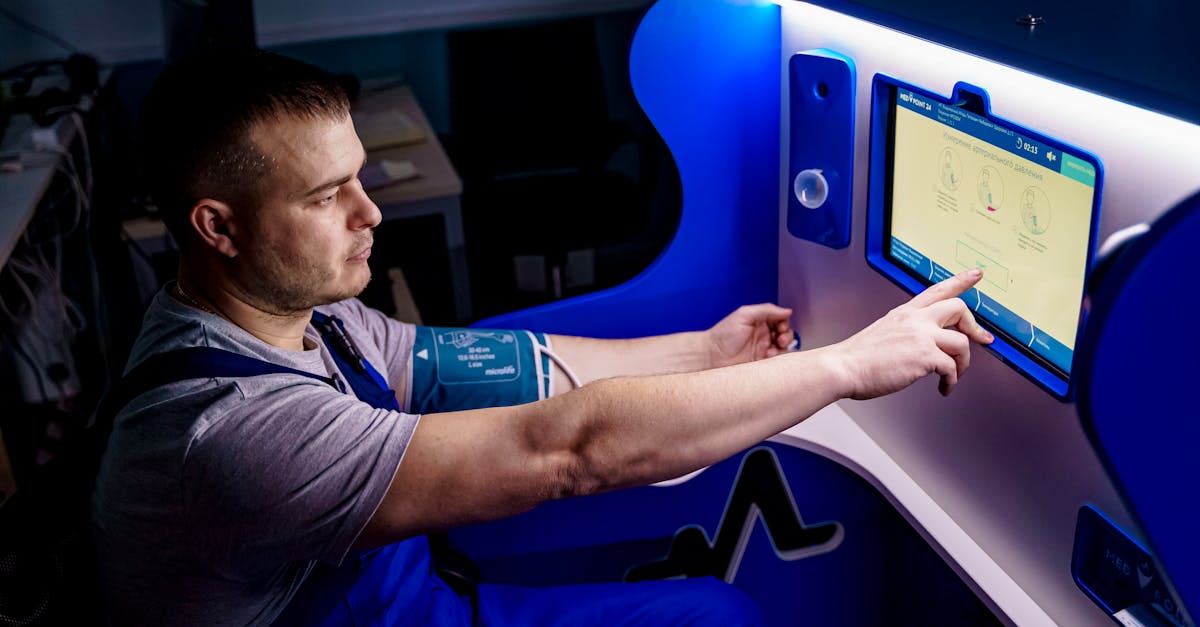2024 Home Health Revelations
Introduction
In recent years, the landscape of home health care has been undergoing a dramatic transformation. With a rapidly aging population and the increasing prevalence of chronic conditions, the demand for home health services has expanded significantly. In 2024, these services are expected to become more advanced, effective, and accessible than ever before. Advancements in technology, changes in healthcare policy, and consumer expectations are reshaping how care is delivered in the home environment. Home health care is now easier to incorporate into daily life, making medical facilities and personnel both comforting and indispensable. The future of home health looks promising, with innovations designed to improve patient care, efficiency, and well-being.
Advertisement
Telehealth and Digital Monitoring
One of the most exciting developments in home health care over the past few years has been the rise of telehealth and digital monitoring tools. As broadband internet and digital devices become ubiquitous, accessing medical professionals virtually is becoming feasible for more people. Telehealth allows patients to consult with healthcare providers without leaving their homes, making healthcare more accessible and cost-effective. Digital monitoring devices, such as wearable health trackers, allow real-time health tracking and data sharing with medical professionals. These technologies have also been vital in managing chronic conditions, enabling timely interventions and reducing hospital readmissions.
Advertisement
Smart Home Integration
The integration of smart home technology is revolutionizing home health care by providing tailored, automated, and comfortable care solutions. Smart speakers, lighting, and climate control systems can now integrate with personal health devices to adjust the home environment according to individual health needs. From medication reminders to health alerts directly relayed through voice-controlled devices, smart homes ensure that assistance is seamless and unobtrusive. Furthermore, advanced robotics assist with mobility, daily tasks, and even offer companionship, significantly enhancing the quality of life for individuals with mobility issues or cognitive impairments.
Advertisement
AI in Home Health
Artificial intelligence (AI) is another game-changer in home health care as it introduces intelligent software capable of assisting or even diagnosing patients. AI-driven systems analyze health data patterns, predict potential health issues, and recommend interventions. Virtual health assistants can facilitate scheduling, medication management, and tailored health education. Moreover, AI enhances the ability of health professionals to make informed decisions quickly, improving patient care and outcomes. As AI technology continues to develop, its application in home health will only expand, promising a futuristic and efficient healthcare ecosystem.
Advertisement
Remote Patient Support
Another significant aspect of home health care is remote patient support. This includes nurse hotlines and on-call doctors who provide immediate advice and interventions. Such support systems ensure that patients receive timely care, reducing emergency room visits and improving overall health management. Remote patient support encourages patients to take an active role in their health management, fostering a more informed and engaged patient population. These systems are vital for individuals in rural or underserved areas, where traveling to medical facilities might not always be feasible or prompt.
Advertisement
Personalized Care Plans
Personalized care plans, tailored to individual needs and preferences, are becoming increasingly common in home health care. This shift acknowledges the unique conditions and lifestyles of patients, promoting more effective care delivery. Health assessments, genetic information, lifestyle data, and patient preferences are integrated into creating personalized care plans. This customization enhances adherence to treatment protocols and supports positive health outcomes. Increased personalization is further facilitated by digital platforms and apps that track patient health metrics and provide insights to caregivers.
Advertisement
Wearable Technology and Remote Monitoring
Wearable technology is growing rapidly in the home health sector. Devices like smartwatches and fitness trackers are not just for fitness enthusiasts—they are critical tools in patient care. These technologies provide continuous health monitoring, capturing data on heart rates, sleep patterns, and even glucose levels for diabetics. Advanced wearables can alert users and their healthcare providers about potential health issues, enabling prompt action and intervention. This continuous health insight empowers patients to take charge of their health and promotes preventive care.
Advertisement
Policy and Reimbursement Changes
The expansion of home health care is also propelled by changes in policy and reimbursement models. As health systems recognize the cost efficiency and patient preference for home-based care, policies are shifting to support these trends. Telehealth services and home visits are more frequently reimbursable by insurance, encouraging wider acceptance and implementation. These changes are expected to increase the reach and viability of home health services across socioeconomic statuses, making quality care available to a broader population.
Advertisement
Enhanced Patient Education
Patient education remains a cornerstone of successful home health care. Improved access to health information, enabled by digital platforms and educational resources, empowers patients to understand and manage their health conditions effectively. Interactive tools and platforms facilitate the sharing of educational content tailored to diverse patient needs, improving health literacy. Educated patients are better equipped to participate actively in their care, enhancing collaborative decision-making between patients and providers. As education tools become more sophisticated, they foster self-management and preventive care, driving better health outcomes.
Advertisement
Conclusion
The revelations in home health care for 2024 offer a glimpse into a future where personalized and efficient care becomes the norm. Innovations in technology, combined with a supportive policy framework, are setting the scene for transformational changes. Patients can now benefit from more tailored and effective care delivered directly to their homes. The convergence of advanced monitoring tools, AI, and smart technologies promotes proactive health management. As home health care evolves, it will play an integral role in the healthcare system, empowering patients and improving quality of life. The future is indeed promising, as home health care becomes more accessible, efficient, and patient-centered.
Advertisement


